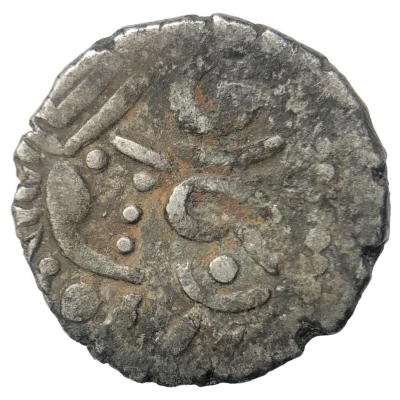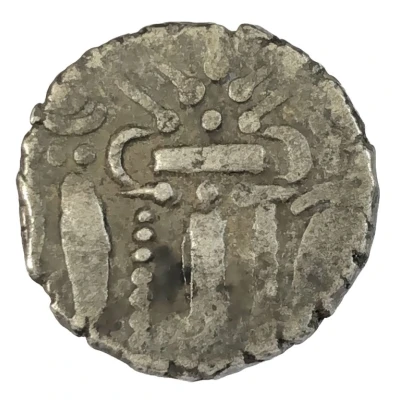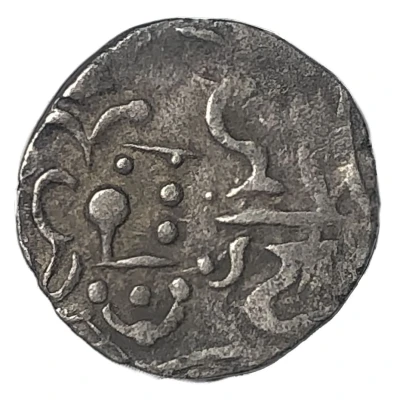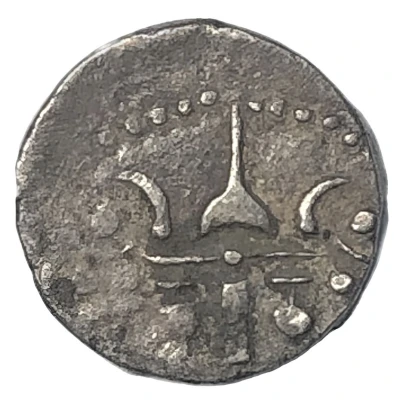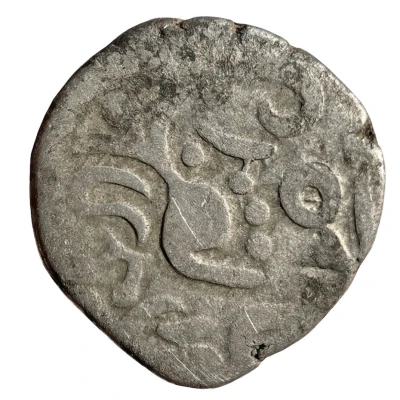
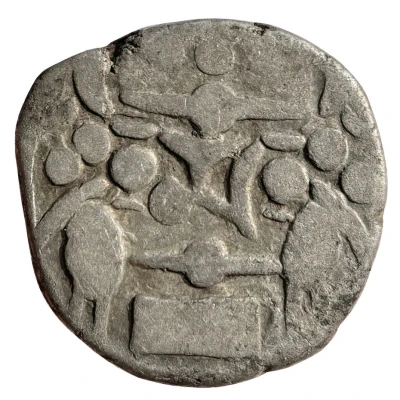

Drachm - Vigrahapala Sri Vigra dramma ND
| Silver | 3.8 g | 16.12 mm |
| Issuer | Pratihara Empire (Indian Northern Dynasties) |
|---|---|
| Type | Standard circulation coin |
| Years | 778-883 |
| Value | 1 Drachm |
| Currency | Drachm (543-1390) |
| Composition | Silver |
| Weight | 3.8 g |
| Diameter | 16.12 mm |
| Thickness | 2.13 mm |
| Shape | Round (irregular) |
| Technique | Hammered |
| Orientation | Variable alignment ↺ |
| Demonetized | Yes |
| Updated | 2024-10-05 |
| Numista | N#423525 |
|---|---|
| Rarity index | 97% |
Reverse
The Fire altar has a solid base; the flames are made up of dots with horizontal lines; letter Ma replaces the altar stand.
Two attendants flank the altar; Dotted border.
Edge
Plain
Comment
Track 3 of Indo-Sassanian Coinage - Eastern Indo-Sassanian coinage - Imperial Pratihara Empire
The Pratiharas - Sri Vigra - tentative period CE 778 - 883 CE
In this series the Proto Sri Vigra (previous emission, link below) is promoted into a type (Fig 121) with legend in two lines, in front of the bust – Sri above and Vigra below it
The Sri above the crown (ref Proto Sri Vigra) disappears, a diamond is added to the chevron-shaped headdress; the reverse of these coins have two varieties.
Type a with letter Ma on reverse
Type b with letter Sa on reverse
Type a
Fig 121a sample coins
Type b
Fig 121b sample coin
Type c
Maheshwari also describes a third variety without letters Ma or Sa on the reverse; the space (of the letter/s) is occupied by a line showing the pedestal; the flames represented by dots since the inception of the Indo-Sasanian series, is replaced by a straight vertical line. The attendant’s hands on the flame side are shown turning towards the head.
A sample coin from the referred book
It is this reverse that is carried over to the next emission of the series, Sri Vi
The above information is based on studies conducted by KK Maheshwari & extracted from his book - Imitations in Continuity
image credits -
1. Imitations in Continuity - K.K. Maheshwari
2. Amit Kher Collection
Interesting fact
One interesting fact about this coin is that it features an unusual combination of Indian and Greek influences in its design. The obverse side of the coin bears the image of Lord Vishnu, a major Hindu deity, while the reverse side features a depiction of the Greek goddess Athena. This blending of cultural influences reflects the diverse cultural heritage of the Pratihara Empire, which was known for its religious tolerance and artistic eclecticism.






